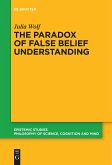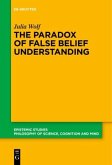What makes it the case that we mean certain things by certain words? What constitutes the relation between the sounds that come out of our mouths and what we mean to say by them? This question is at the heart of the philosophy of language. In a way, it is a question about how words, things in the world and the intentions of speakers are all related to each other. The Kripkenstein Paradox is a startling argument which shows that nothing makes it the case that we mean certain things by the words we use no one means anything by any word he says. The paradox has drawn much attention among philosophers, and it was considered as the most radical and original sceptical problem that philosophy has seen to date (WRPL 60). This book provides an extensive examination of the Kripkenstein paradox and its various solutions. The author shows that in order to solve this problem we must expand our familiar ontology. Moreover, it appears that the proper solution of the paradox entails anti-realismregarding many areas of discourse, and hence the paradox calls for a revision of our perspective of the world.
Bitte wählen Sie Ihr Anliegen aus.
Rechnungen
Retourenschein anfordern
Bestellstatus
Storno








